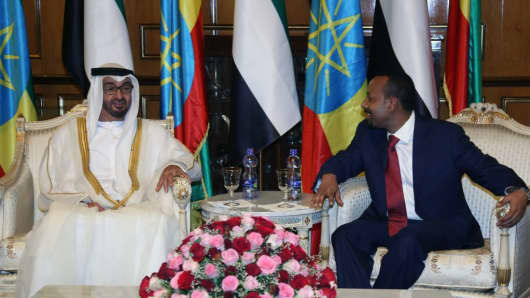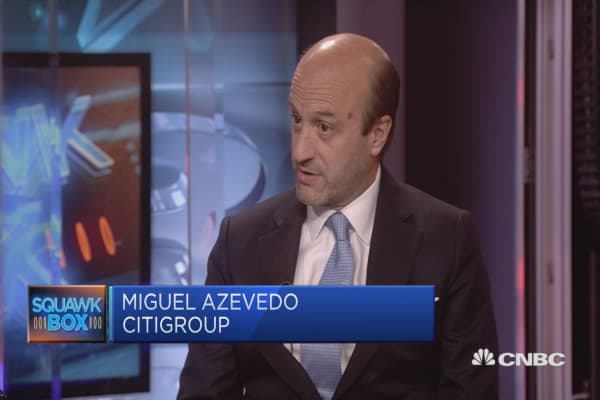The United Arab Emirates (UAE) is to deposit $1 billion in Ethiopia's central bank to ease the latter's foreign exchange shortage.
The sum is part of a total of a $3 billion aid and investment pledge from the UAE to Ethiopia announced Friday. The news came as Abu Dhabi's Crown Prince Sheikh Mohammed bin Zayed Al Nahyan visited Ethiopian Prime Minister Abiy Ahmed in Addis Ababa.
Ethiopia's foreign exchange shortage is due in part to its spending big on infrastructure projects. The current total left in the East African country's coffers is equivalent to less than one month's worth of imports, Reuters has reported.
Over the weekend, Ethiopia and neighboring Somalia announced that they were investing in four seaports on the Red Sea to draw in foreign investment. Abiy and Somalian President Mohamed Abdullahi Farmajo, speaking in Somalia's capital Mogadishu, issued a joint statement of pledges to cooperate on areas including infrastructure and visa services, according to Reuters.
In April, Abiy said that Ethiopia's foreign exchange shortage could last up to 15 to 20 years, and that more cooperation with the private sector was needed to secure the country's finances.
The Red Sea coastline is strategic because it leads to the Suez Canal, which serves as a gateway for shipping, moving between Eastern and Western markets.
Landlocked Ethiopia is keen to shore up its international trade infrastructure; for example, taking a stake in the Port of Djibouti in May.
The weekend's news is the latest in a slew of reforms coming out of the Ethiopian government.
In early June, lawmakers voted to lift Ethiopia's state of emergency two months early. This was imposed following the sudden resignation of former Prime Minister Hailemariam Desalegn in February following anti-government protests fueled by ethnic tension.
Shortly after, the Ethiopian government said it would implement a historic peace deal with neighboring Eritrea, formerly a province of Ethiopia. The deal, though signed in 2000, did nothing to end a military standoff along the two countries' borders. Abiy, as reported by Reuters, said that Ethiopia and Eritrea should work to grow their economic and infrastructural ties.
In addition, the government also said it would allow private investment in some areas of the heavily state-controlled economy, including national carrier Ethiopian Airlines and the telecoms sector.
Ethiopia, a country that has seen double digit gross domestic product (GDP) expansion as recently as 2017, despite being among Africa's poorest, has espoused a China-style state-led development model in order to achieve economic growth.
According to the Central Intelligence Agency's 2014 estimate, 29.6 percent of the population lives below the poverty line.







